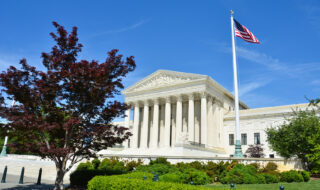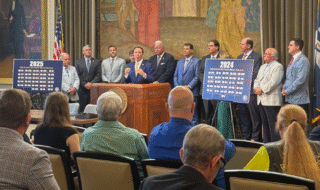Politics in the Workplace Dos and Don’ts
Politics in the Workplace Dos and Don’ts
October 7, 2024
Politics in the Workplace Dos and Don’ts
As election day approaches, political discourse may become more common among your employees in the workplace. While it is natural for this to occur, it is crucial that potential differences in opinions between workers does not disrupt workplace harmony. Navigating politics in the workplace and fostering a respectful environment can often be a tricky endeavor for business owners. There is a lot to consider when undertaking this issue both from a day-to-day work and legal standpoint.
The Pitfalls of Politics in the Workplace
Business owners must understand their responsibilities and potential issues when it comes to politics in the workplace. Since politics can be a highly personal topic, political debates can create tension among employees. The situation can become even more strained when the divide is between a business owner or manager and an employee.
Small business owners are free to publicly support any candidate they’d like and may be as open about their own political views as they choose. However, pressure from any superior on the topic of politics is counterproductive in a workplace and can be a serious demotivator. If employees feel that their job, promotions, or professional relationships are in jeopardy due to a difference of political views, it can create serious problems, including legal issues. As a business owner, understanding these potential pitfalls can help promote this harmonious work environment, and dissuade any behavior that would cause rifts.
Federal and State Laws Concerning Politics in the Workplace
From a broad standpoint, the National Labor Relations Act (NLRA) protects employees who engage in “work related” political discussions. These include discussing wages, benefits, workplace conditions, and other relevant issues with equals. An employer may not make any attempts or threats to suppress or ban these conversations.
When it comes to general political views, there is no federal law protecting employees based on political affiliations, however, Equal Employment (EEO) Opportunity laws may factor in, if the issue surrounds discussions on race, religion, and gender. More likely than not, any legal issue that arises from politics in the workplace will be handled at the state level. It is important that employers familiarize themselves with their state laws on this topic. These include an employer’s inability to
- Influence an employee’s vote in an election;
- Threaten to terminate an employee based on political affiliation;
- Discriminate an employee based on political affiliation; and much more.
How can I Prevent These Issues from Arising?
One of the best ways to prevent issues from politics in the workplace is to have a clear policy non-harassment and non-discrimination policy that is communicated well to all members of staff. The policy should outline acceptable and unacceptable behavior, and to avoid allegations of discrimination, it must apply equally to everyone, regardless of the candidate or message being supported. You can also communicate a confidential process for employees to report any concerns regarding the policy or continued behavior that may be in violation. Having open communications among you, your managers and employees, can help thwart any major political issues in your workplace. Download NFIB’s Model Employee Handbook to help you draft a policy for your workplace.
A workplace environment should be fueled by camaraderie and shared goals, and not political divide. Implementing a clear and fair non-discrimination policy is a major step in creating a comfortable environment for all workers. Additionally, having a policy in place is helpful if an issue arises in the future.
For additional questions on politics in the workplace you can email info@nfib.org
NFIB is a member-driven organization advocating on behalf of small and independent businesses nationwide.
Related Articles














